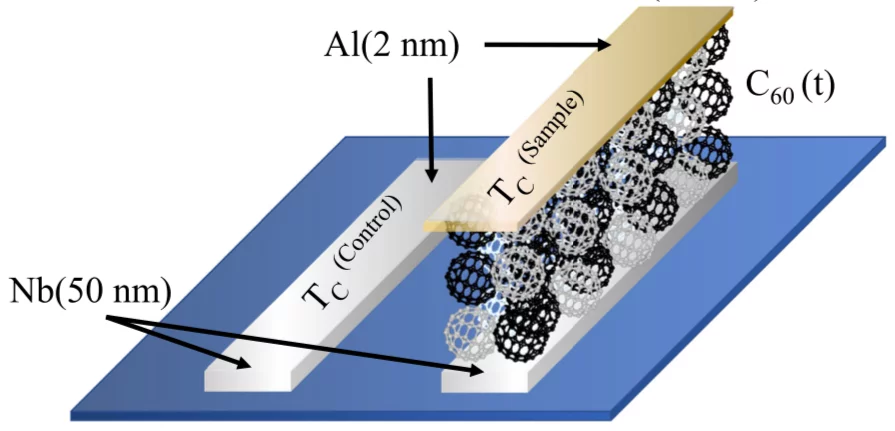Combining magnetic and superconducting functionalities enables lower energy spin transfer and magnetic switching in quantum computing and information storage, owing to the dissipationless nature of quasi-particle mediated supercurrents. Here, we put forward a system where emergent spin-ordering and diffusion of Cooper pairs are achieved at a non-intrinsically magnetic nor superconducting metallo-molecular interface. Electron transport, magnetometry and low-energy muon spin rotation are used to probe time-reversal symmetry breaking in these structures. By comparing the Meissner expulsion in a system including a Cu/C60 spin-converter interface to one without, we observe a paramagnetic contribution that can be explained due to the conversion of spin-singlet Cooper pair states into odd-frequency triplet states. These results demonstrate the potential of metallo-molecular interfaces to achieve singlet to triplet Cooper pair conversion, a capability not present in either metal or molecule separately that could be used in the generation and controlled diffusion of spin polarised dissipationless currents.
Facility: SμS
Reference: M. Rogers et al, Communications Physics 4, 69 (2021)
Read full article: here


